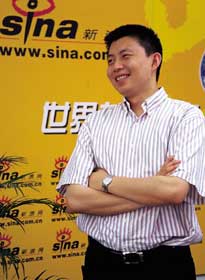Updated: 2004-09-17 08:40
Beijing's Central Business District (CBD) is to draw on the experiences of foreign counterparts to attract multinationals to move their headquarters into the area.
Beijing is to sign a contract in exchange with "La Defense" of Paris, the French capital city's CBD, during the ongoing fifth Beijing Chaoyang International Business Festival.
Zhang Mao, Beijing's vice-mayor, said on Tuesday at the Forum on CBD Multinationals Headquarters & Regional Development that the Beijing CBD had also signed a Letter of Intent of Friendly Exchange with Manhattan borough in New York City, the world's leading CBD, in May.
"We are striving to establish sound relations with similar areas, in a bid to introduce their advanced administrative and management skills to speed up the development of the Beijing CBD and make it a real hub for headquarters of transnational companies," said Zhang.
Official statistics show that 31 multinationals have set up regional headquarters in the capital city, of which more than 80 per cent are in the CBD.
More than 170 of the world's top 500 enterprises have launched joint ventures or subsidiaries in Beijing, and 83 of them have chosen to settle down in the CBD.
So far, more than 800 overseas companies, about 500 transnationals and 570 foreign representative offices have located in the CBD.
A group of foreign entrepreneurs provided suggestions at the forum to accelerate the fast growth of the Beijing CBD.
Joel Epstein, AIG Country Manager for China a transnational company in the Beijing CBD, said that the CBD should develop its polycentric urban design and invest heavily in public transportation, given the city's high population density and traditional urban design.
"To maximize success in attracting multinationals' headquarters to relocate to the CBD, I believe that the area needs to develop a stimulating living and working environment," Epstein said.
China Business Info Center
